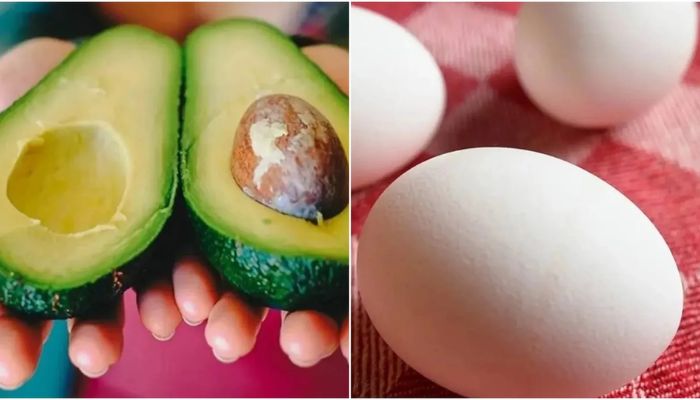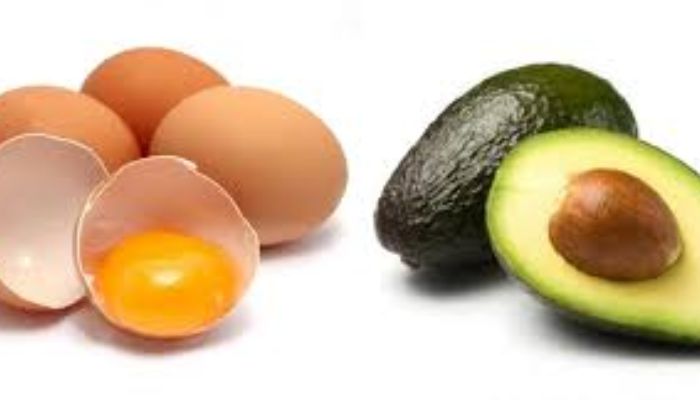As a nutritionist with over 7 years of experience counseling clients on healthy eating for weight loss and wellness, two foods I often get asked about are eggs and avocados. My clients want to know, are eggs or avocados better in terms of calories and nutritional value? Which one should they eat more of? Read the article “Eggs vs Avocado Calorie Counts and Nutritional Benefits” below.
As a professional, I don’t like to label any whole foods as “bad.” Both eggs and avocados can be part of a balanced diet. However, in my practice, I’ve found some key differences that are important for people to understand.
In this article, I’ll share my in-depth perspective on eggs versus avocados when it comes to calories, nutrition, and health impacts. I’ll also offer realistic, evidence-based guidance on how to incorporate these nutritious foods into your diet.
Calorie Count: Eggs Pack More Calories than Avocados
When clients ask me to compare eggs versus avocados, the first thing most people want to know is: which food has more calories.
Here are the basic nutrition facts:
- One large hard-boiled egg (50 grams) contains about 78 calories
- One ounce or slice of hard-boiled egg (about 1/8th of a large egg) provides roughly 10 calories
- One medium avocado (200 grams) has approximately 322 calories
- A one-ounce serving of avocado (about 1/5th of a medium fruit) offers around 80 calories
As you can see, ounce for ounce, eggs and avocados have a similar calorie density at around 80 calories per ounce. However, typical serving sizes differ quite a bit. People tend to eat a whole egg at a time, whereas avocado is usually consumed in smaller, one- to two-ounce portions.
This means from a practical standpoint, choosing avocado most often will lead to a lower daily calorie intake for most people.
As a nutritionist counseling clients hoping to lose weight, I typically recommend enjoying eggs in moderation (1-2 per day max) while using avocado as the staple healthy fat in meals and snacks.
The Vitamin and Mineral Content Favors Avocados
When it comes to micronutrients like vitamins and minerals, avocados outshine eggs significantly.
One medium avocado contains over 20 vitamins and minerals, delivering substantial amounts of key nutrients like:
- Fiber: 11 grams
- Vitamin K: 26% DV
- Folate: 30% DV
- Vitamin C: 33% DV
- Potassium: 28% DV
- Vitamin E: 21% DV
- Magnesium: 15% DV
In comparison, one large egg provides fewer micronutrients. Key nutrients supplied in an egg include:
- Selenium: 22% DV
- Vitamin B12: 15% DV
- Vitamin B5: 12% DV
- Vitamin A: 10% DV
- Phosphorus: 10% DV
As you can see, while eggs do contain a wider array of vitamins and minerals than most other single foods, the quantities present in one egg are quite modest compared to the significant amounts found in just half an avocado.
In my clinical practice, I’ve seen first-hand how the fiber, potassium, folate, and antioxidant content of avocados makes them uniquely supportive of heart health, blood sugar regulation, digestion, and healthy aging. I can confidently recommend that my clients eat avocados daily without concern about calories or carbs.
The Same Healthy Types of Fat
One area where eggs and avocados shine equally is their high content of monounsaturated fatty acids (MUFAs) and polyunsaturated fatty acids (PUFAs).
These healthy forms of dietary fat have been shown in many studies to benefit cardiovascular health when consumed in place of saturated fats or refined carbs.
One large egg yolk contains about 5 grams of fat, most of which comes from beneficial unsaturated fats like:
- Oleic acid (a MUFA also found in olive oil)
- Linoleic acid (an anti-inflammatory omega-6 PUFA)
- DHA and EPA (anti-inflammatory omega-3 fats not usually present in plant foods)
Similarly, one serving of avocado delivers 10 grams of fat, predominantly from MUFAs and PUFAs like:
- Oleic acid
- Palmitoleic acid (a MUFA linked to insulin sensitivity)
- Linoleic acid
- Linolenic acid (an omega-3 alpha-linolenic acid precursor)
The naturally high unsaturated fat content of both egg yolks and avocados is why they have cholesterol-lowering and heart-protective effects despite being high-fat foods. The type of fat matters more than the total fat amount when it comes to health impacts.
As a nutritionist, I counsel clients not to fear the fat or cholesterol in whole eggs and avocados. In moderation, these nourishing foods with balanced macros positively contribute to a heart-healthy diet.
Differing Effects on Blood Sugar Levels
One advantage of avocados over eggs is their low glycemic index. Multiple studies have found avocados do not significantly impact blood sugar levels, with their high monounsaturated fat content contributing to slower digestion and carb absorption.
Some research shows avocados may even improve insulin sensitivity and beta-cell function. As a result, I often recommend avocado to clients with type 2 diabetes or prediabetes as a beneficial replacement for high-carb foods.
On the other hand, eggs are considered a medium glycemic index food, eliciting more of an insulin response due to their high protein content.
For my clients struggling with insulin resistance, I therefore advise cautious egg intake to avoid unwanted blood sugar spikes. That said, for clients without blood sugar dysregulation, eggs in moderation remain a great option as part of a low-glycemic balanced meal.
Sustainability Differences
One final consideration as a nutritionist is the environmental impact of food choices. Studies show avocado production has 3-4 times the carbon footprint of egg production.
The main sustainability advantage of eggs is that backyard homestead egg production is quite feasible and scalable. I’ve worked with local clients to set up their own small-scale egg-laying operations using rescued heritage breed hens. This makes eggs one of the more planet-friendly animal proteins available.
Avocados don’t have the same potential for long-term home production. As the only crop grown commercially in Peru, avocados are bad for the environment because they use a lot of water, damage the land, and cause chemicals to run off.
So, while I think both eggs and avocados are healthy, eggs are usually better for the environment, especially when they are grown nearby.
How I Recommend Incorporating Eggs and Avocados
Because of everything we’ve talked about so far, here are some evidence-based tips from my job as a nutritionist on how to eat eggs and avocados in a healthy way:
For losing weight or getting diabetes or pre-diabetes:
- Focus on avocado every day as your main source of healthy fats.
- Eggs are high in calories, so you should only eat one or two a day at most.
- Both are good for you when you eat low-glycemic meals.
For Health in General:
- Eggs and avocados should be eaten often.
- Eat the right number of eggs for your level of activity and caloric needs.
- When you can, choose local egg sources that are sustainable.
- For better blood sugar control, eat avocados with vegetables that are high in fiber.
Getting the most nutrition from a plant-based diet:
- In breakfast dishes, 1/4 avocado can be used instead of eggs.
- You can use half an avocado instead of mayo or cheese on sandwiches.
- You can blend avocado into smoothies, dressings, dips, and desserts.
- Add egg replacer powder to boost the protein content.
As a nutritionist with a lot of experience, I hope that this in-depth comparison helps you make smart decisions about how to include eggs and avocados in your healthy lifestyle. Please let me know if you have any other food match-up ideas for future posts.

Pooja Bohra is a certified nutritionist with over 8 years of experience in the field. At UnderCalories.com, she specializes in creating personalized dietary plans and promoting sustainable health practices, grounded in evidence-based research. Pooja is dedicated to helping individuals achieve their wellness goals. Follow her on Instagram for the latest tips and insights on balanced nutrition and healthy living.

